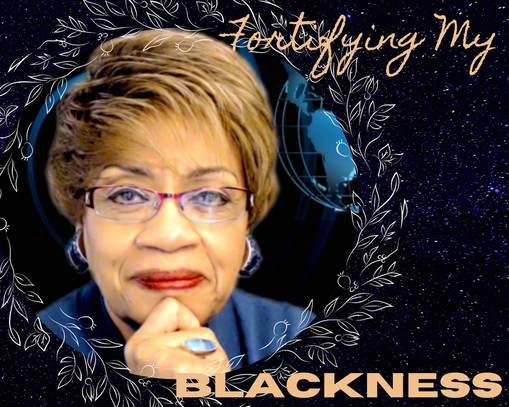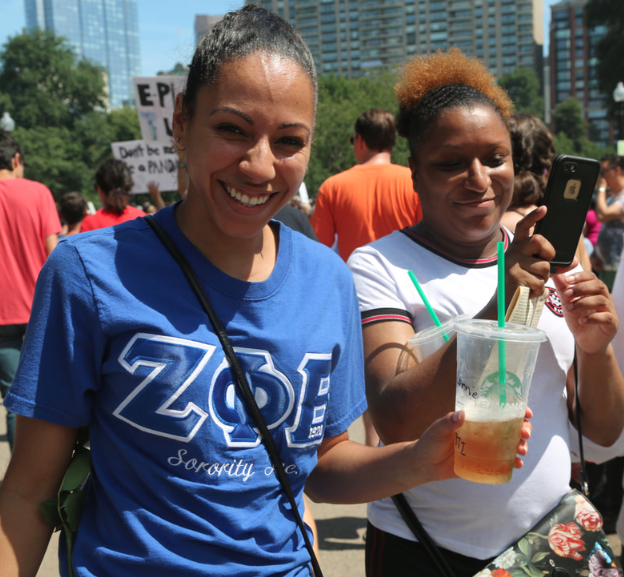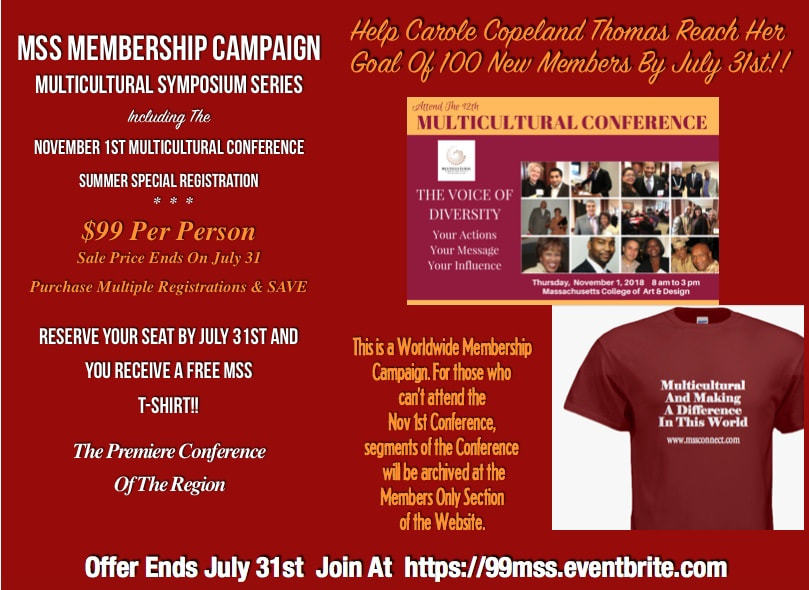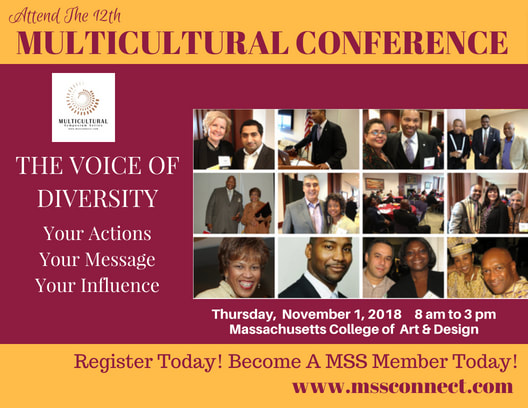|
By Carole Copeland Thomas My late mother lived up to her profession as an educator by making sure I knew about the world, my family, and my ethnicity. “You have a heritage,” she repeatedly said to me from childhood until I was a grown woman with children of my own. And a moment wouldn’t pass without Gwendolyn Charleston Copeland making sure that I honored my heritage by respecting myself, my family, and those in my community.
As annoying as it may have been to endure that cultural education from my mother, I would soon realize that she was also fortifying my Blackness from the discrimination I was bound to face in my lifetime. Her lessons, stories, and patient leadership helped me to endure the worst, ignore petty trivialities, value significant moments, and confront injustice on every occasion. My mother’s teachings helped me to become a proud African American woman. I have never been confused about my ethnicity, my family, and certainly not my heritage. And being an African American has empowered me to pursue opportunities with excitement and enthusiasm, even if layers of discrimination are littered along the way. Much of my 34 years as a business owner and diversity professional have been spent helping organizations to build better cross-cultural bridges of mutual understanding. I have traveled all over America and to several other countries using that framework with my work. I speak on topics other than global diversity and multiculturalism, including leadership, empowerment, and relationship enhancement. I also have memberships in several civic and professional organizations and have served in several leadership roles throughout the years. Last week I was asked to deliver a workshop on the importance of accountability, relationships, and reputation to one of the organizations I have enjoyed membership in for many years. I prepared for the session several days before the event and made a point that my slide deck was racially neutral, inclusive, informative, and educational. The session kicked off on Zoom, and the exchange of information fueled an active dialogue with some 25 participants eager to learn. I was the final speaker in the organization’s six-week summer series, and it felt good to contribute in such a meaningful way. Near the end of the program, as the breakout room facilitators were sharing the comments from their small groups, one voice blurted out the N-word, loud enough for everyone to hear. I was the only Black person in attendance, and the word pierced my level of concentration so loudly that you would think I had been hit with a virtual shotgun straight between the eyes. Early on in the program, I had been made a co-host. I frantically worked to mute the assailant, to no avail. I could not mute him. Finally, seconds later, the chapter president removed the hate-filled person from the Zoom meeting. I looked at the stunned faces of my colleagues on the screen and knew I had to speak up and speak out about what had just happened. My voice was unwavering, and I told the group that I needed to address the “elephant in the room” as we processed what had just happened. I remained calm and told the group the outburst was merely a validation of why my diversity work was so important in our society. Racism was alive and well, and we had just witnessed the ugliness of its actions. The chapter president and her board activated swiftly. As the Zoom host, she was also unable to mute the participant but was able to quickly remove him from the session. She apologized profusely, denounced his action, and send a letter to the workshop attendees banning his membership in our organization for life. The chapter also offered to make a contribution in my name to the nonprofit of my choice. They said NO to the N-word and NO to hate. The chapter president did reach out to the N-word assailant. He was a non-member and had attended the previous five sessions, so he wasn’t your typical hit-and-run Zoom bomber. He offered no remorse, stated that he blurted out the word when his mobile phone discharged and never apologized. I realized at that moment three things: 1. This is why my mother worked so hard to teach me about my heritage. 2. Some people will never accept my Blackness. 3. To some, using the N-word on Black people is a way to devalue their humanity. My reaction to these three truths include the following: 1. My mother’s wisdom lives defiantly in my spirit. That includes the messages of my father, brother, grandparents, uncles, aunts, cousins, and ancestors who came before me. 2. Ignorance and hatred fuel racism, and those who can’t accept Black people, especially in leadership positions, are a hindrance to the growth of America. 3. You can’t take away my Blackness, and you’ll NEVER devalue my humanity! That Zoom workshop was the third time in my life I recall being called the N-word. Sadly, I know it won’t be the last. However, I know that Gwen Copeland lives on in my spirit, and my work will live on. Racism will not stop our need to build new bridges of cultural understanding throughout our country and beyond. My Blackness has been fortified, and when the next N-word comes my way, I’ll be ready with the right response and call to action. Bring it on! You can’t stop my work, my dedication, or my determination to bring cultural change to our country! Bring it on!!
7 Comments
By Carole Copeland Thomas In the 31 years I have been in the diversity, multicultural, and inclusion industry, one of the most popular topics focuses on diversity names, categories, and labels. Let me share my perspective on one category that causes both agreement and disagreement with those who lay claim to its importance and meaning in our global society. Question: Which Term Is It? Black or African American? Answer: Either term is appropriate. Some people prefer African American, while others prefer black. Style, tradition, and history dictate which term to use. From a global perspective, black is more appropriate, referring to any person of African descent from Lagos, Nigeria, to Liverpool, England to Long Island, New York. The term African American pertains to those individuals living in the United States. It can relate to people like me, a 7th generation American whose ancestors were born in slavery. It can also pertain to those born outside of the US, but now living in America. However, don't be surprised if you encounter those born outside of the US who still reject self-identifying as "African Americans." For example, some in the Haitian community will call themselves Haitian-Americans or Haitians before calling themselves African Americans. It gets tricky because one term does not fit all. Your best bet is to ASK QUESTIONS and get feedback from a person or group before arbitrarily assigning a label to an ethnically different person. Here's where it gets a bit complicated: The socially acceptable term to use in the US: People of Color NOT acceptable in the United States: Colored People (this is an old term closely tied to racial discrimination of the past.) Please Note: The term "colored" is still used by some in South Africa to describe people of mixed race. Old Fashion Term in the United States that may turn heads if you use it: Negro or Afro-American Yes, I know about the Afro-American Newspaper in Baltimore, Maryland. The publisher emeritus was the best man at my brother's wedding. It is one of the oldest and most respected newspapers in the US. I also know about the NAACP - National Association for the Advancement of Colored People. That organization, like several others, decided to keep their original name first created in 1909. A term that is NOT ACCEPTABLE anywhere: Nigger. It's so distasteful that it’s difficult for me to even include it in this guidebook. I am particularly offended that it is the word of choice by some hip-hop artists, rap artists, comics, and other entertainers. NO, it is not at all cool to use that word. The historical implications connected to its violent past are still too radioactive to consider mainstreaming its use. And finally, there are those who only prefer to be called an "American" or "human" and see no value at all in the realm of diversity categories and labels. So, your best bet is to ASK people of color which term they prefer using. You might be surprised in their response. |
* * * * * * * *Archives
August 2023
|
©2024 All Rights Reserved Carole Copeland Thomas • (508) 947-5755 • Carole@mssconnect.com




 RSS Feed
RSS Feed